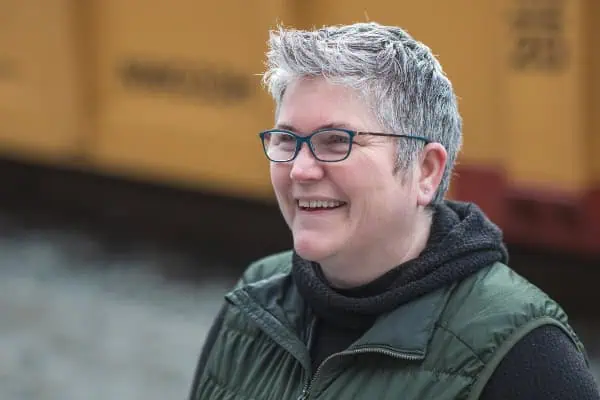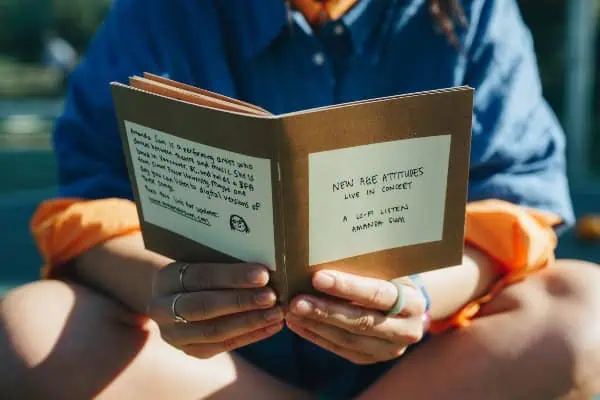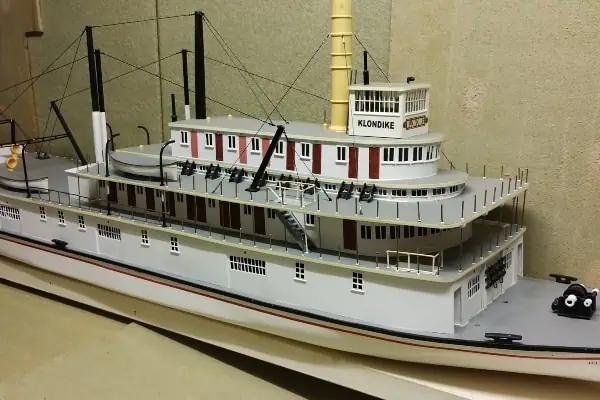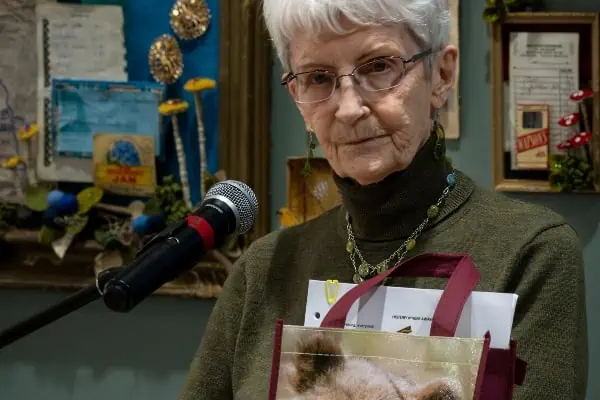Canada was part of the British Empire, so when war was declared by Great Britain on August 4, 1914, Canada, too, joined the the conflict. There was a tremendous upswing of patriotic fervour.
The vast American influx during of the Klondike gold rush had been largely replaced by a more settled British population, eager to step forward in support of “King and Empire.” Within days, a register had been placed in the administration building in Dawson City and it was quickly filled with the names of volunteers.
Many men didn’t wait for an enlistment campaign. By boat, and on foot, they left the Klondike to enlist. One man walked 400 miles to Whitehorse, but when he reached the Outside, he was rejected for having flat feet. Another man, a Mountie, was so eager to enlist that he deserted his post. The train was stopped at Carcross and he was dragged off and returned to duty. He later made it overseas and was decorated for bravery.
Within weeks several men had reached recruitment centres and were quickly sent overseas. Some lied about their age; students added a year or two to meet the requirements, while others subtracted them to avoid rejection for being too old.
Two men traveled by dog team from Old Crow to Fort Yukon, and then up the Yukon River to Dawson City. Others trickled in from outlying areas – Atlin, Kluane, Carmacks and Mayo – to join up. Inquiries even reached Dawson City from Alaska requesting information on how to enlist.
The exodus continued for four years. Some left on their own, others traveled in small groups, while entire companies of 50 or more joined in. By war’s end, nearly a thousand brave men and women had enlisted from a population in the Yukon of perhaps 5,000.
Little has been written – or spoken – about the exploits of the brave Yukon men and women who volunteered to serve their country during the Great War (1914-1918), but that is about to change.
From May 9 to 15, the Yukon Historical and Museums Association is sponsoring “The North and World War I,” which is a program of talks and events related to World War I.
At the High Country Inn and around town, events will focus on how the North, and the Yukon in particular, were involved in the great global conflict that was supposed to end all war. The acts of Joe Boyle, Sam Steele, Martha Black and Robert Service, as well as many other less well-known men and women will be recognized for their contributions during the war.
Speakers representing several countries will participate, as well as a number of well-known Yukon historians. The Yukon Archives will unveil a new exhibit related to the Yukon and the war, and a memorial for the fallen will be held at the cenotaph. There will also be a three-day study tour to Dawson City.
For more information and on-line registration, go to HeritageYukon.ca and click on “North and First World War.”
Commemorating the Yukon Heroes of World War I
The Yukon Historical & Museums Association is coordinating a series of initiatives to commemorate the First World War and explore its impact on the North. The events include a workshop on May 9, the North and First World War Conference on May 9-12 and a Dawson Study Tour on May 13-15.




